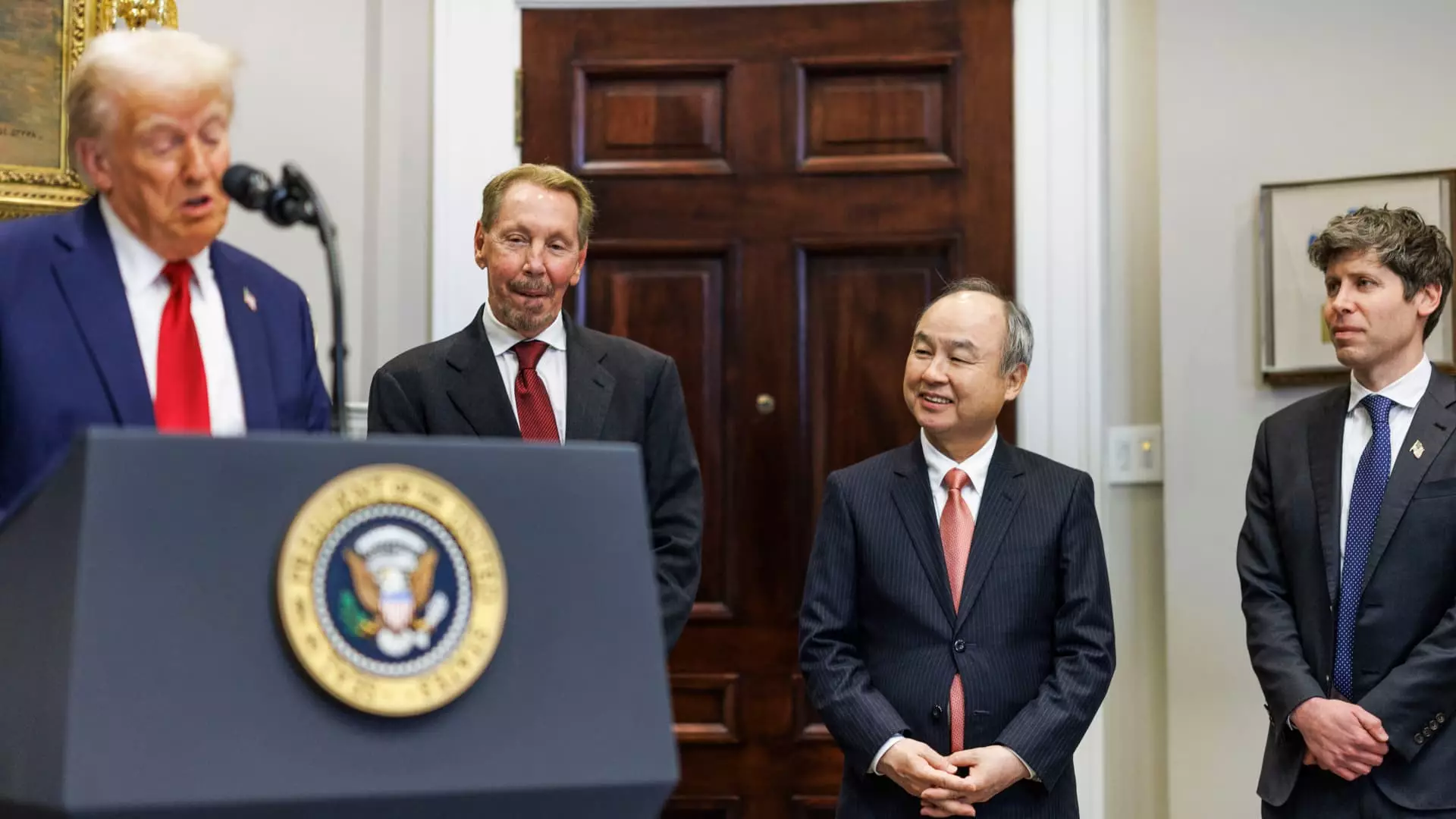The partnership between Microsoft and OpenAI, once defined by exclusivity in cloud support, is entering a transformative phase. Recent announcements have revealed that OpenAI will no longer see Microsoft as its exclusive cloud provider, marking a significant shift in their business dynamic. This change comes alongside the unveiling of the Stargate Project, a substantial joint venture involving OpenAI, Oracle, and SoftBank, aimed at investing vast sums into artificial intelligence infrastructure in the United States. This evolving landscape not only highlights the adaptability of tech partnerships but also raises questions about competition and collaboration among leaders in the artificial intelligence sector.
At the heart of this shift is the Stargate Project, designed to bolster AI infrastructure through massive financial commitments. Announced by former President Donald Trump, this initiative represents a coalition of powerhouse firms, with an initial pledge of $100 billion, potentially escalating to a staggering $500 billion over the next four years. This ambitious project signifies a strategic pivot for these companies, particularly for Oracle, which is positioning itself as a critical technology ally in this venture. The project aims to bolster America’s AI capabilities, and as Oracle Chairman Larry Ellison noted, significant steps are already underway with data centers under construction.
These cutting-edge facilities, each sprawling over half a million square feet, symbolize the rapid growth of data requirements associated with AI models and applications. With 10 buildings planned initially and the possibility of expansion, Oracle is striving to enhance its competitive edge in the cloud landscape, a domain historically dominated by Amazon, Microsoft, and Google. This aggressive expansion initiative also highlights how tech companies are increasingly recognizing the key role AI will play in future services.
Microsoft’s Strategic Position and Future Outlook
Despite losing exclusivity, Microsoft remains a significant player in its partnership with OpenAI. The tech giant retains the “right of first refusal” when OpenAI seeks additional computing capacity, indicating that while the partnership is evolving, their relationship is far from over. Microsoft has historically poured substantial resources into OpenAI, including a pivotal investment of $1 billion back in 2019. This initial investment dramatically changed the landscape for both companies, facilitating OpenAI’s migration to Microsoft Azure as its primary cloud platform.
Moreover, despite the shift toward a more competitive landscape, Microsoft continues to see increased consumption from OpenAI services. Recently, the AI firm reaffirmed its commitment to Microsoft Azure, hinting at further collaborative ventures. This raises an interesting aspect of their relationship: while OpenAI explores other options, Microsoft’s infrastructure and support remain integral to its operations. They are still woven into OpenAI’s fabric, especially concerning intellectual property and API services.
However, the growing disparity in their relationship cannot be overlooked. Microsoft’s naming of OpenAI as a competitor last July reflects the complexities that arise from rapid technological advancements. The ambitions of OpenAI CEO Sam Altman, as discussed by Microsoft CEO Satya Nadella, spotlight the driving forces behind this competitive mindset. Nadella’s comments suggest a newfound awareness within Microsoft of the challenge that an ambitious OpenAI could pose in the future landscape of AI.
Both companies now find themselves navigating choppy waters as they balance competition with collaboration. The inherent challenge lies in fostering the innovative potential of both organizations while harnessing the synergies that made their partnership successful initially.
As the tech industry progresses, the partnership between Microsoft and OpenAI serves as a fascinating case study of evolving dynamics in the world of artificial intelligence. The duality of collaboration and competition webbed throughout their narrative underscores the complexities inherent in high-stakes partnerships. As they adjust to their new realities, the coming years may reveal whether their relationship can flourish amid this transformation or if the burgeoning competitive spirit leads to divergent paths in their quest for AI supremacy. The Stargate Project and the broader shifts within the tech ecosystem emphasize that in this aim, collaboration may ultimately prove crucial – but it will need to evolve in tandem with competitive forces at play.

